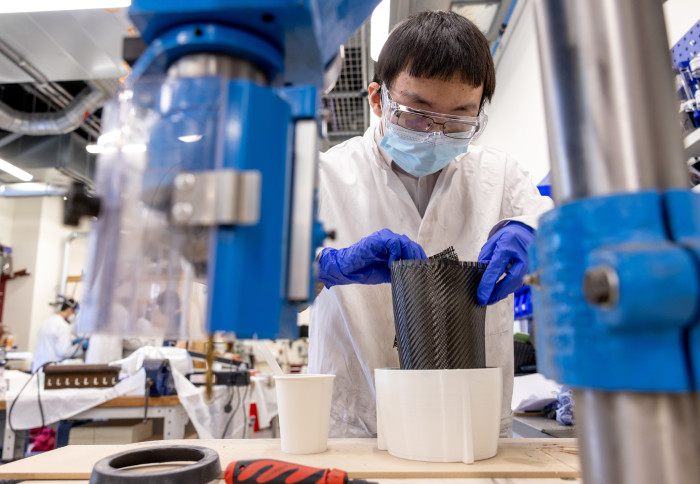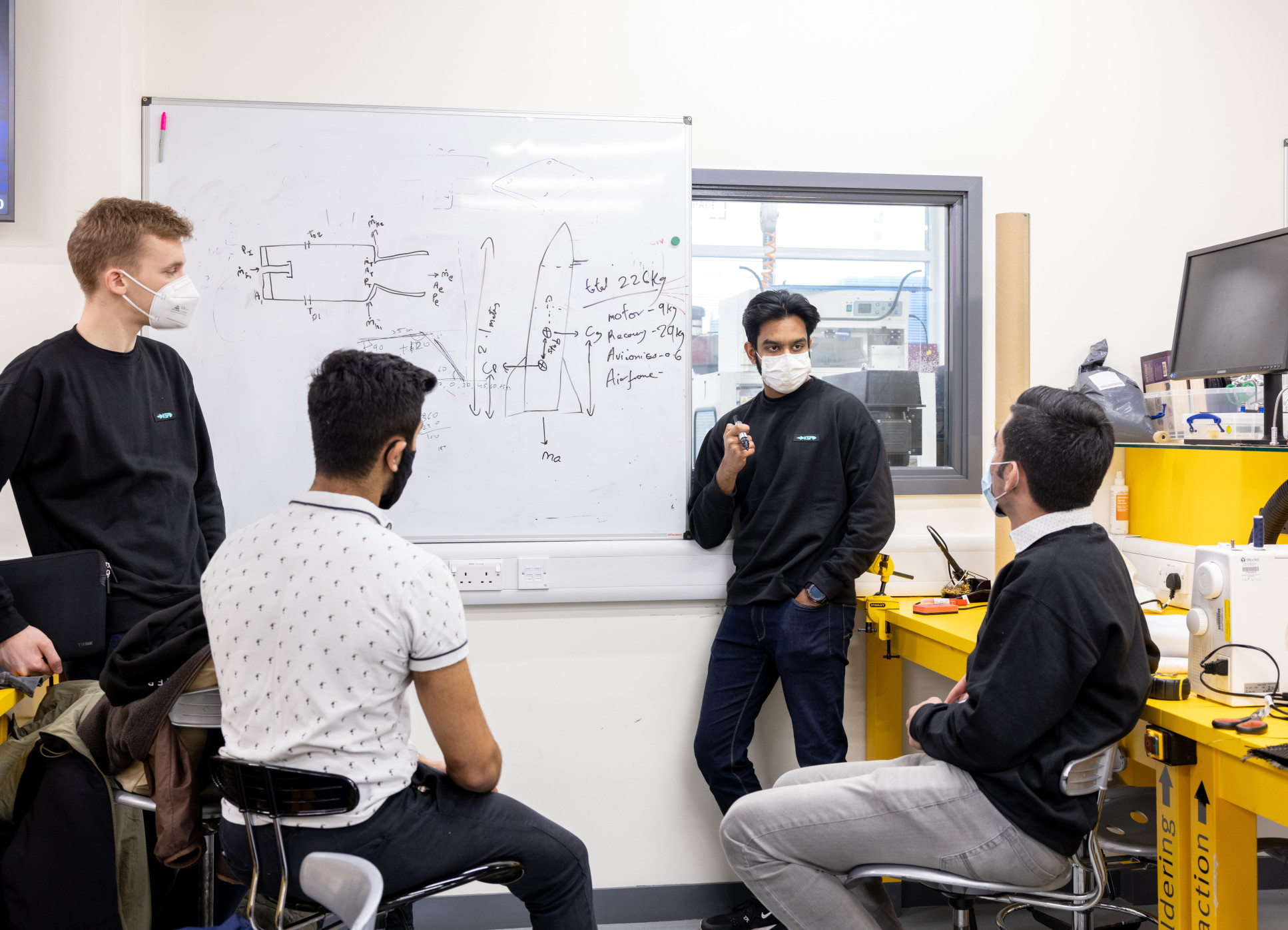Imperial students set to send reusable rocket into space

Students at Imperial College London hope to be the world’s first university team to launch a reusable rocket into space.
The Karman Space Programme at Imperial plans to design, build and launch a rocket to pass the Karman Line – the internationally recognised boundary to space, roughly 100km above sea level – and then successfully return it to Earth to be used again.
If successful, the Imperial team will be the first student group to achieve the remarkable feat with a reusable rocket.
The team will build and launch a series of prototypes over the next two years, aiming at different altitudes and helping them refine their design before building up to the launch of a 100km altitude rocket in 2024 – to pass the Karman Line.

First launch
The first launch is to take place in Scotland on 16 July 2022. They will be testing the recovery and avionics systems of the rocket and verifying if the rocket is reusable.
With a reusable design, the Karman Space Programme students are stretching rocket technology to deliver positive benefits to our lives with minimal negative impact on the Earth, making this a really worthwhile student project. Helen Sharman Britain's first astronaut and UK Outreach Ambassador at Imperial
Aeronautical Engineering students Shapol M., Shakil Perera, Tian Fang and Mohammad Kapadia started their own space programme last summer after initially discussing the idea as part of an end of year project.
By the end of the 2021, they had recruited students from across the university to be involved, as well as a team of academic supervisors and advisors, including Computing alumni Dr Ali Baghdadi.
Now the student team is a mixture of undergraduate and postgraduate students, from ten departments and three faculties across the College.
"Diverse, ambitious and unique"
Shapol said: "This diverse, ambitious and unique group of students are making space more accessible and sustainable, and want to show what is possible for the future.”
Helen Sharman, Britain’s first astronaut and UK Outreach Ambassador at Imperial said: “A huge factor in making rockets eco-friendly is the manufacture of the rocket itself.
“With a reusable design, the Karman Space Programme students are stretching rocket technology to deliver positive benefits to our lives with minimal negative impact on the Earth, making this a really worthwhile student project.”
A full-size replica of the rocket will be displayed shortly in the College’s main entrance. It will be nine metres in height, the largest student-built rocket in the UK.
The final rocket and their early prototypes will be researched and designed by the team, with most elements being built at the College’s White City Campus, including the Advanced Hackspace.
Some elements, including the rocket’s liquid engine, will be manufactured by British aerospace manufacturing company GKN. One of the project’s sponsors, Dassault Systèmes, has supported the team to simulate their designs.
Correction: This article was corrected on 27 July. The article previously incorrectly stated that a replica of the rocket would be displayed in the Science Museum in December.
Article text (excluding photos or graphics) © Imperial College London.
Photos and graphics subject to third party copyright used with permission or © Imperial College London.
Reporter
Thomas Angus [Photographer]
Communications Division
Joanna Wilson
Communications Division